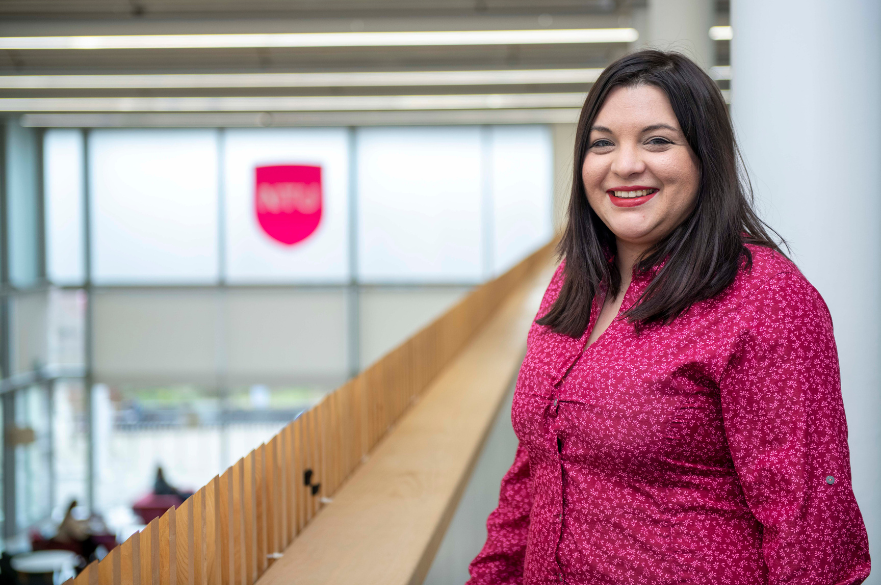Role
I am a Research Fellow in Molecular Metabolism. My research focuses on the role of microRNAs in brown adipocyte biology.
Career overview
I completed my PhD in Biomedical and Life Sciences from Lancaster University. My PhD research uncovered ultradian oscillations of SOCS3 and pSTAT3 in response to different stimuli in human intestinal epithelial cells. By deploying molecular tools such as CRISPR/Cas9 and tandem fluorescent timers, I developed a new approach to explore the localization and trafficking of SOCS3, while also allowing for the monitoring of its promoter activity in response to various ligand treatments.
During my time at Lancaster University, I also supported research on the cellular and molecular mechanisms of cannabinoid system in the gastrointestinal epithelium and worked as a Teaching Associate in the department of Biomedical and Life Sciences. Here I assisted with the teaching of workshops and seminars in courses such as microbiology, molecular biology and biochemistry.
Before undertaking my doctoral studies, I completed my MSc in Molecular Pathology and Genomics from Barts Cancer Institute at Queen Mary University of London. My research focused upon the investigation of the methylation of HPV33 L2 in low and high-grade cervical intraepithelial Lesions. Whilst in London, I also participated in a project at UCL Cancer Institute that concentrated on the research related to the development and optimisation of Antibody Directed Enzyme Prodrug Therapy (ADEPT) systems that aim to progress towards more specific and less toxic therapy for human cancer.
My BSc was in Human Genetics from Newcastle University. The aim of my BSc project was to examine the use of telomere length as a marker of stem cell fitness.
My academic journey, spanning from BSc to PhD, reflects an enriching exploration of diverse yet complimentary research fields, providing me with a stimulating background, the opportunity to develop expertise in laboratory techniques and most importantly, the ability to discover specific scientific passions, all of which has fuelled my research at NTU. Since 2020, I have been ardently working as a Research Fellow in the Institute of Science and Technology, at NTU, on various research projects led by Professor Mark Christian.
Research areas
I started my Research Fellowship at Nottingham Trent University in February 2020. Since then, I have been working intensively in Prof Mark Christian’s laboratory, undertaking research on the regulatory role of microRNAs during adipogenesis. I am investigating the expression of both mRNA and microRNA in different models such as immortalised brown/white adipocytes, primary cultures and embryonic stem cells.
Enriched miRNAs were identified in mature adipocytes and pre-adipocytes using small RNAseq analysis. To delineate the potential functions of those enriched miRNAs during adipogenesis, we developed two model systems where the levels of those miRNAs were manipulated: 1) immortalized brown pre-adipocytes (BAT) and white pre adipocytes (WAT) treated with miRNA Inhibitors or mimics and 2) CRISPR/Cas9 miRNA KO in E14 mouse embryonic stem cells (ES). Both cell models are differentiated to mature adipocytes using optimized protocols.
To unravel the pathways that are affected by this depletion or increase of those specific miRNA levels, we performed a variety of research techniques including but not limited: qRT-PCR, Western Blotting, fluorescent microscopy as well as proteomic and transcriptomic analysis at key time points of the differentiation process.
My research also utilizes Seahorse Real-Time Cell Metabolic Analysis to investigate the impact of miRNA ablation on mitochondrial respiration and glycolysis.
Given the frequent utilization of CRISPR gene-editing technology in our research projects across different cell models, I am actively exploring diverse approaches to improve and optimize every step of its workflow. This involves the design, delivery of the CRISPR constructs to the cells, enrichment and single cell isolation as well as screening for confirmation of edits.
Since my PhD research project, I developed a strong interest in live imaging and confocal microscopy. Through confocal courses and research projects that I have been involved in during my academic career, I had the chance to try different acquisition parameters using conventional confocal microscopy and Airyscan as well as enhance my skills in the post image analysis which includes Photoshop and FIJI. I am eager to stay current with the latest developments in this field.
I also provide guidance and training where appropriate to support staff and students using sophisticated lab instruments (FACS sorting and EVOS microscope) for their research projects.
